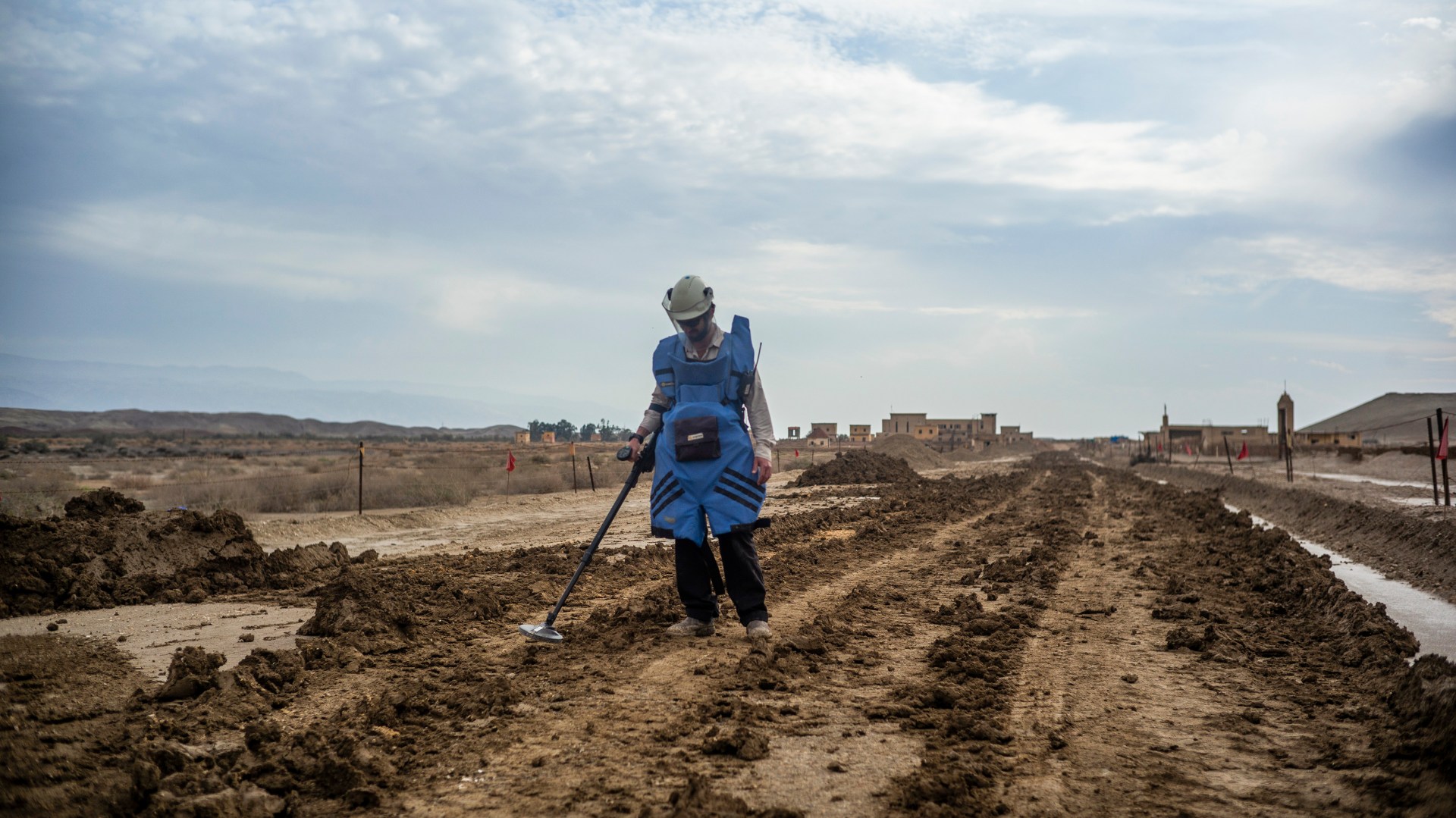For over 50 years, Jesus’ baptismal site was a casualty of war.
Now, it is a casualty of the new coronavirus.
Last week in time for Easter, the UK-based demining specialist HALO Trust group exploded in chain reaction the final 500 landmines at Israel’s Qasr al-Yahud monastery complex.
“We got the churches together, all eight different denominations, and then we got the Israelis and the Palestinians,” HALO Trust CEO James Cowan told the BBC.
“So all three major faiths, and we looked at how we could do this.”
Located six miles east of Jericho on the Jordan River, “Bethany beyond the Jordan” in 1968 was placed by Israel under military jurisdiction following the Six Day War. Fearing terrorist infiltration across the shallow riverbed, the army laid over 6,000 landmines and booby-trapped the churches.
Israel declared peace with Jordan in 1995, but the area remained closed.
In 2011, it was partially reopened, allowing access along one narrow path between the Jordan River and the Greek Orthodox St. John the Baptist Monastery.
And in 2016, HALO Trust, which works in 27 nations around the world, announced it would begin demining efforts. Funding issues caused a two-year delay.
Significant progress began in March 2018, after securing the necessary $4.6 million ($2 million of which was provided by the Israeli government).
By year’s end, CT reported that 800,000 pilgrims visited the not-yet-fully-demined complex. In 2019, CT reported how Christian rapper Lecrae was one of them and provided information on the ecological concerns surrounding the Jordan River.
Qasr al-Yahud—“the Castle of the Jews” in Arabic—is located at the traditional location of the Jews crossing into the Promised Land. It is also associated with the ascent of Elijah into heaven on a chariot of fire.
A competing baptismal site lies on the Jordanian side of the river. In 2000, Pope John Paul II paid his respects; in 2014, Pope Francis did the same.
The Greek Orthodox church, which dates back to the fourth century, was partially destroyed by an earthquake in A.D. 1024 and was rebuilt in the 12th century. Other buildings belonging to the Franciscan, Ethiopian, Russian, Syrian, Romanian, and Coptic churches were built in the 1930s.
Restoration work is now ready to begin.
Bullet holes line the walls of chapels, winepresses lie fallow, and bird droppings collect on sanctuary floors.
“It was like walking into a time capsule,” said Cowan, “with beer still on the shelf, the tables still laid for dinner.”
A representative of each church accompanied the minesweepers upon entry, to ensure nothing was stolen or damaged. Palestinian staff provided logistical support, helping to earn local trust.
For the past nine years, HALO has cleared other sites in the West Bank, coordinating between Palestinians and Israelis. But there are still approximately 35 square miles of landmines in the West Bank, according to The Wall Street Journal.
These have not deterred a historic number of tourists, however. Last year, Israel received a record-high 4.55 million visitors, up 10 percent from 2018, when 61 percent of visitors were Christians. The sector contributed $6.3 billion to the national economy.
As demining progressed at Qasr al-Yahud, Israeli officials expressed optimism that pilgrims to the baptismal site would triple, as each church gained full access to its facilities.
Now, COVID-19 is devastating the industry. Closing the borders to tourism may cost $1.7 billion, the Israel Hotel Association stated.
This may be particularly painful to Palestinians in Bethlehem, where 70 percent of the economy is derived from tourism and 9 out of 10 industry workers are Christians.
Qasr al-Yahud concentrates its traffic around the January celebration of Epiphany, predating the new coronavirus outbreak.
But just as the sacrament symbolizes death and rebirth, perhaps the traditional site of Jesus’ baptism can foreshadow a brighter future.
“In the time of COVID, these grim times, it’s really nice to have a story like this,” said Cowen. “There’s actually a bit of hope.”












